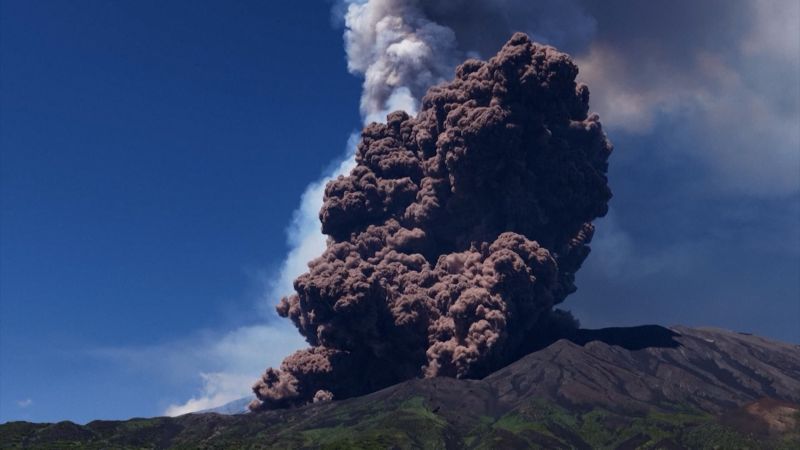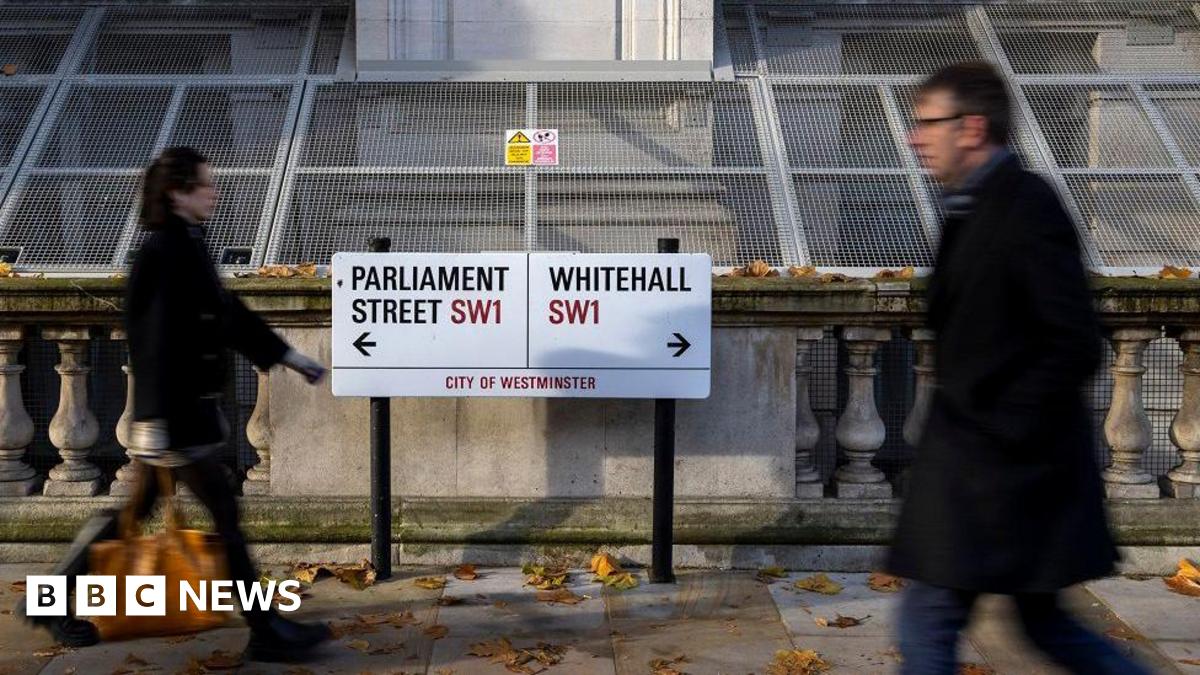Is El Salvador A Dictatorship? Examining Bukele's Presidency

Welcome to your ultimate source for breaking news, trending updates, and in-depth stories from around the world. Whether it's politics, technology, entertainment, sports, or lifestyle, we bring you real-time updates that keep you informed and ahead of the curve.
Our team works tirelessly to ensure you never miss a moment. From the latest developments in global events to the most talked-about topics on social media, our news platform is designed to deliver accurate and timely information, all in one place.
Stay in the know and join thousands of readers who trust us for reliable, up-to-date content. Explore our expertly curated articles and dive deeper into the stories that matter to you. Visit Best Website now and be part of the conversation. Don't miss out on the headlines that shape our world!
Table of Contents
Is El Salvador a Dictatorship? Examining Bukele's Presidency
El Salvador is at a crossroads. Under President Nayib Bukele, the country has experienced dramatic shifts, leading many to question whether it's veering towards authoritarianism. While Bukele enjoys widespread popularity, fueled by promises of tackling gang violence and corruption, concerns about democratic backsliding are increasingly prevalent. This article delves into the key aspects of Bukele's presidency, examining the evidence and arguments surrounding the crucial question: is El Salvador becoming a dictatorship?
Bukele's Rise to Power and Initial Promises:
Nayib Bukele, a charismatic outsider from the Nuevas Ideas party, swept into power in 2019, promising a radical departure from the established political order. His campaign resonated with a populace frustrated by endemic corruption and soaring crime rates, particularly gang violence linked to maras like MS-13 and Barrio 18. His promises of a "mano dura" (strong hand) approach to security and an end to impunity garnered significant support. This initial popularity laid the groundwork for his subsequent actions.
The Erosion of Democratic Institutions:
However, Bukele's presidency has been marked by a steady erosion of democratic institutions. Critics point to several key actions as evidence of authoritarian tendencies:
-
Control of the Legislative and Judicial Branches: Bukele's Nuevas Ideas party now holds a supermajority in the National Assembly, effectively giving him unchecked legislative power. Simultaneously, he has exerted significant influence over the judiciary, leading to concerns about the independence of the courts. The removal and replacement of Supreme Court justices in 2021 is a prime example, widely condemned by international organizations like the OAS (Organization of American States).
-
Restrictions on Freedom of the Press: Journalists critical of Bukele's administration have faced intimidation and harassment. This includes lawsuits, online attacks, and a general climate of fear that stifles independent reporting. The Committee to Protect Journalists (CPJ) has documented several instances of press freedom violations in El Salvador under Bukele’s leadership.
-
Use of Security Forces: While the Bukele administration's "territorial control" strategy has led to a significant drop in homicides, concerns remain about the potential for human rights abuses by security forces. Reports of extrajudicial killings and arbitrary arrests have surfaced, raising serious questions about due process and the rule of law.
-
Chilling Effect on Opposition: The political opposition faces significant challenges, with accusations of politically motivated prosecutions and limitations on their ability to effectively campaign. This creates a chilling effect, limiting the space for dissenting voices and alternative perspectives.
The "War on Gangs" and its Consequences:
Bukele's "war on gangs," a central pillar of his presidency, has undoubtedly led to a reduction in homicides. However, this success comes at a cost. The government's aggressive tactics have raised concerns about human rights violations and the potential for abuses of power. The mass arrests, often without due process, have overcrowded prisons and sparked debates about the proportionality of the response. [Link to external article on human rights concerns in El Salvador].
International Condemnation and Support:
Bukele's actions have drawn both condemnation and support from the international community. While some praise his efforts to reduce crime, others express deep concern about the democratic backsliding. The United States, a key ally, has voiced concerns about human rights and the rule of law in El Salvador. [Link to a relevant US State Department report].
Conclusion: The Debate Continues
Whether El Salvador is a dictatorship is a complex question with no easy answer. While the significant drop in crime is undeniable, the erosion of democratic institutions, restrictions on freedoms, and concerns about human rights abuses paint a troubling picture. The international community and Salvadoran citizens alike continue to grapple with the implications of Bukele's rule, and the debate surrounding the future of El Salvador's democracy remains fiercely contested. The long-term consequences of Bukele's presidency will undoubtedly shape the country's trajectory for years to come. Further monitoring and analysis are crucial to fully understand the implications of these developments.

Thank you for visiting our website, your trusted source for the latest updates and in-depth coverage on Is El Salvador A Dictatorship? Examining Bukele's Presidency. We're committed to keeping you informed with timely and accurate information to meet your curiosity and needs.
If you have any questions, suggestions, or feedback, we'd love to hear from you. Your insights are valuable to us and help us improve to serve you better. Feel free to reach out through our contact page.
Don't forget to bookmark our website and check back regularly for the latest headlines and trending topics. See you next time, and thank you for being part of our growing community!
Featured Posts
-
 Nyt Spelling Bee Puzzle Complete Guide For June 3rd
Jun 03, 2025
Nyt Spelling Bee Puzzle Complete Guide For June 3rd
Jun 03, 2025 -
 Lorenzo Musettis Breakthrough Top 10 Scalp At Grand Slam Tiafoes Us Open Impact
Jun 03, 2025
Lorenzo Musettis Breakthrough Top 10 Scalp At Grand Slam Tiafoes Us Open Impact
Jun 03, 2025 -
 French Open Days Play Draper Defeats Monfils In Five Set Epic
Jun 03, 2025
French Open Days Play Draper Defeats Monfils In Five Set Epic
Jun 03, 2025 -
 Witness The Power Etna Volcano Erupts Tourists Run For Safety
Jun 03, 2025
Witness The Power Etna Volcano Erupts Tourists Run For Safety
Jun 03, 2025 -
 Texas Preemies Remarkable Recovery Fish Skin Treatment Heals Severe Wound
Jun 03, 2025
Texas Preemies Remarkable Recovery Fish Skin Treatment Heals Severe Wound
Jun 03, 2025
Latest Posts
-
 Analysis Mc Larens Strong Practice Performance At The Hungaroring
Aug 02, 2025
Analysis Mc Larens Strong Practice Performance At The Hungaroring
Aug 02, 2025 -
 Mc Laren Dominates Hungarian Gp Practice Unstoppable At The Hungaroring
Aug 02, 2025
Mc Laren Dominates Hungarian Gp Practice Unstoppable At The Hungaroring
Aug 02, 2025 -
 Could Robert Pattinson And David Corenswets Heroes Unite In A Dc Sequel
Aug 02, 2025
Could Robert Pattinson And David Corenswets Heroes Unite In A Dc Sequel
Aug 02, 2025 -
 New Rules Civil Service Internships Reserved For Working Class Applicants
Aug 02, 2025
New Rules Civil Service Internships Reserved For Working Class Applicants
Aug 02, 2025 -
 Kai Cenat Vs X Qc A Net Worth Showdown
Aug 02, 2025
Kai Cenat Vs X Qc A Net Worth Showdown
Aug 02, 2025
